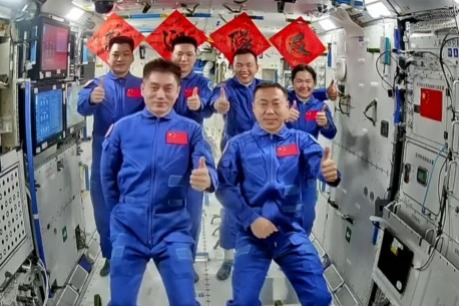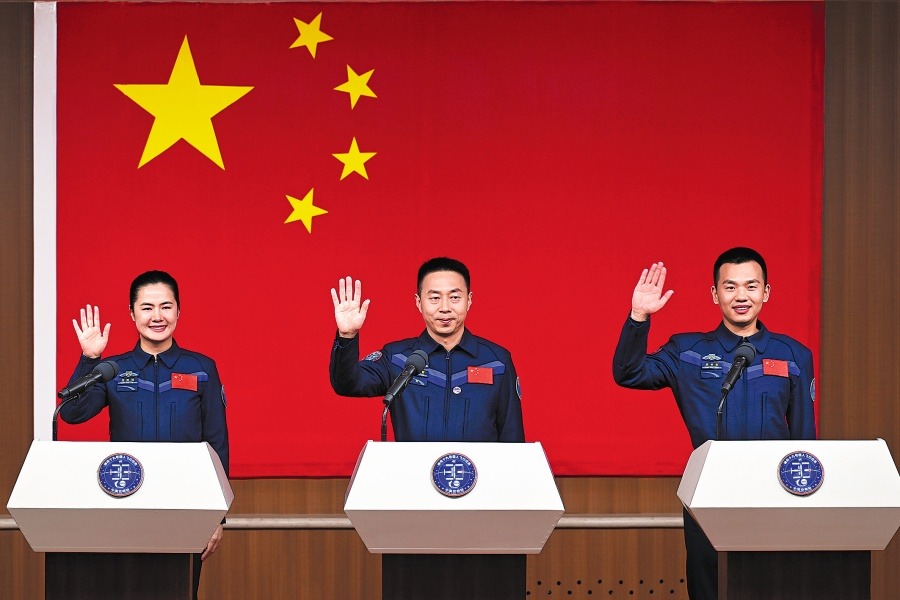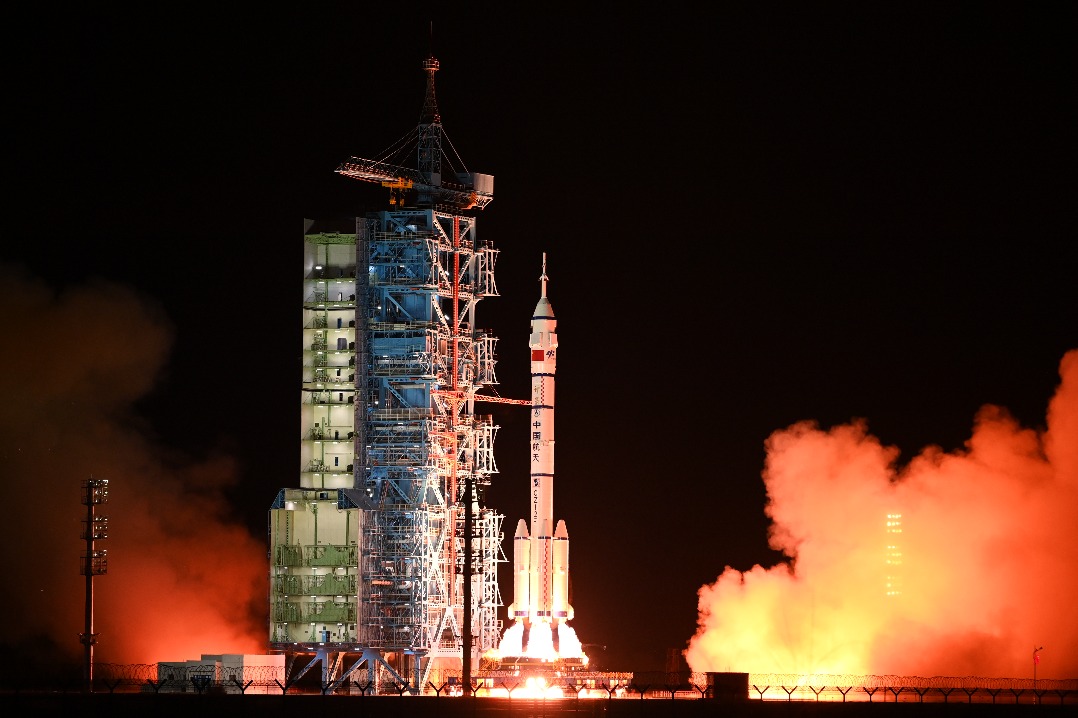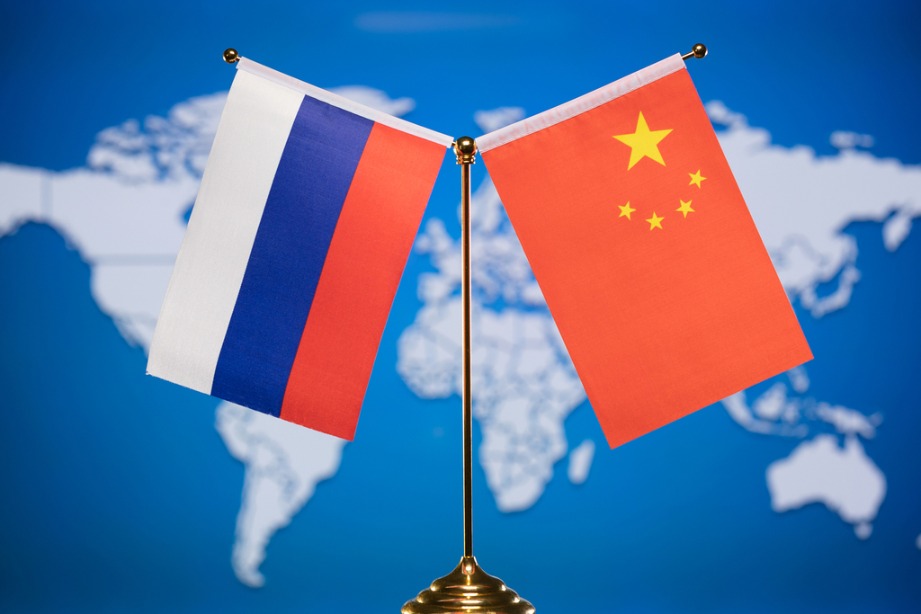Dynamic propulsion


Building on past achievements, Malaysia and China are driving the trajectory of relations higher
In 1974, when Malaysia and China bridged the ideology gaps and formally established diplomatic relations, it was at the height of the Cold War and the times of uncertainty. With the strong commitment by leaders of the two countries, issues relating to the legacy of the Cold War were gradually resolved, allowing for mutual trust and bilateral ties to grow from strength to strength. It became a demonstration that despite different political and social systems, Malaysia and China could exist and develop meaningful and mutually beneficial cooperation in many sectors benefiting their two peoples.
For Malaysia, engagement with China provided it an opportunity to reset its foreign policy toward nonalignment. It signaled the importance of China to Malaysia's development and well-being, which remains the case today.
Looking back at this visionary decision now, we can be proud that it had not only benefited Malaysia and China but also the Association of Southeast Asian Nations region too. Today, ASEAN-China cooperation has bloomed, which covers all sectors, contributing to regional prosperity, peace and stability.
Over the past five decades, Malaysia-China relations have expanded and deepened to the current level of a comprehensive strategic partnership, despite leadership changes in both Malaysia and China. The current Malaysian Prime Minister Anwar Ibrahim is following in the footsteps of all his predecessors in building upon and strengthening the legacy of NajibTun Razak's Malaysia-China policy. In his meetings with Chinese leaders, Prime Minister Anwar Ibrahim reaffirmed Malaysia's commitment to further deepening existing ties and seeking new areas of cooperation.
The consensus reached by President Xi Jinping and Prime Minister Anwar Ibrahim on the building of a China-Malaysia community with a shared future has brought the bilateral relations to a higher level. This development is expected to be an additional bonding platform between the two peoples and an important contribution to the building of a harmonious, peaceful and interconnected world. The visa waiver arrangement introduced by both Malaysia and China for travel by their respective citizens was indeed a historic and strategic move to facilitate people-to-people exchanges. It reflects the mutual trust and friendship that have been forged over the past 50 years.
Relations between Malaysia and China have been carefully nurtured and managed over the years, and today the two countries enjoy a healthy and robust relationship. The initial atmosphere dictated by suspicion in governing the relationship in the formative years has been transformed into one of trust, respect and a key partnership. It is one of the most successful stories of Malaysia's foreign policy. All the nine prime ministers of Malaysia after Tun Abdul Razak shared his vision on the strategy and importance of having good relations with China. Each of these leaders during their respective administrations have made a positive contribution to further consolidating Tun Abdul Razak's legacy. As the date of the anniversary of the establishing of diplomatic relations between the two countries approaches, Malaysians are in a festive mood looking forward with great expectation to an even brighter future for Malaysia-China relations.
In the past five decades, Malaysia and China have benefited from each other's developments and national policies that particularly boosted economic ties, especially trade and investment. China's reform and opening-up policy, membership of the World Trade Organization, good-neighborly policy, the China-ASEAN Free Trade Agreement and other platforms such as the Regional Comprehensive Economic Partnership have had positive effects that have helped to consolidate bilateral ties and deepen economic integration over the years.
Since 2009, China has been Malaysia's largest trading partner, the total value of bilateral trade is 450.8 billion yuan ($62.3 billion) or 17.1 percent of Malaysia's total external trade. A review of the snapshot of Malaysia-China economic linkages provides a clear demonstration of the success of the two countries' relations since 1974, resulting in mutual prosperity and harmony. It also provides clear evidence that upholding free trade and multilateralism are important policy tools for the Global South for its modernization and development goals.
As the Malaysia-China relationship embarks on the next phase, there is immense potential for deeper collaboration, enhanced connectivity and shared prosperity, with several developments likely to shape the future upward trajectory of bilateral ties.
Economic integration through platforms such the Belt and Road Initiative, the ASEAN-China Free-trade Agreement, and the RCEP will enhance connectivity, infrastructure development, trade facilitation, supply chain linkages, industrial diversification and economic growth.
Malaysia should seize the opportunity that China offers through cooperation in innovation and technology, in particular, in artificial intelligence, renewable energy, and new businesses associated with emerging green industries such as electric vehicles.
Malaysia can also learn from China's experiences in its successful modernization programs, such as in the field of poverty eradication, project delivery and implementation, talent and technical skills training, upgrading of SME skills in trade promotion, modern agriculture, food security and public health.
Opportunities for cooperation in R&D, education, tourism, structured student exchanges and other fields could further intensify people-to-people exchanges, strengthening mutual understanding and friendship.
The promotion of civilization dialogue values, in parallel, Malaysia's core values of "Madani" and promotes progress toward a Malaysia-China community with a shared future, as agreed upon by the leaders of both Malaysia and China.
Both Malaysia and China are to remain committed to the principles guiding bilateral relations as stipulated in the joint communique between Malaysia and China signed on May 31, 1974, particularly on the provision relating to peaceful coexistence despite the differences in social systems as well as holding the one-China Policy.
Malaysia-China relations have traversed a remarkable journey since 1974, evolving from historical connections to a strategic partnership and comprehensive cooperation. The seeds planted in 1974 have grown to a healthy tree as the two nations celebrate the five-decade long diplomatic ties. The resilience and dynamism of bilateral relations have reflected the common aspiration, mutual respect, and interest of both countries.
Based on the trust and goodwill that Malaysia and China have enjoyed over the past 50 years, there is no doubt that relations will remain robust in the many years to come. Both Malaysia and China must seize opportunities, address challenges, and further build upon the foundation of trust and friendship built by our leaders. By fostering more dialogue, innovation, and connectivity, both countries can unlock new avenues for collaboration and realize their shared vision of prosperity and an interconnected future.
The author is president of the Malaysia-China Friendship Association. The author contributed this article to China Watch, a think tank powered by China Daily.
The views do not necessarily reflect those of China Daily.
Contact the editor at editor@chinawatch.cn.


































